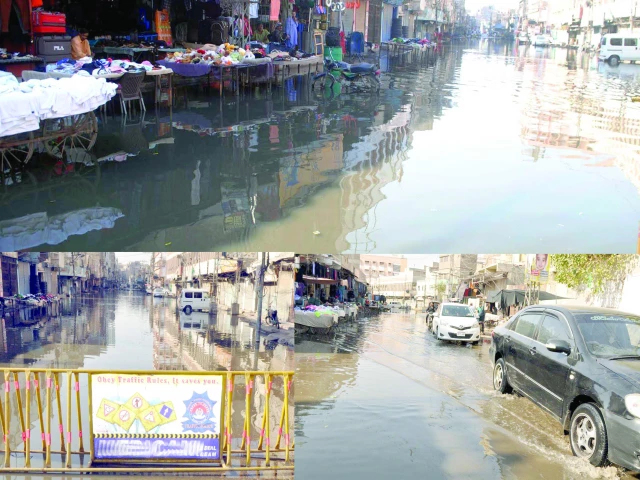Hyd drowns in filth after rains
HYDERABAD:
Poor sanitation following recent monsoon rains has left the city covered in piles of garbage and stagnant water, causing severe inconvenience for residents. The failure of the Hyderabad Municipal Corporation and its nine towns to carry out proper waste disposal and anti-germ spraying has worsened the situation, triggering the spread of mosquitoes, flies, and other insects.
As a result, local hospitals and private clinics are reporting a surge in malaria, dengue, chikungunya, gastroenteritis, liver and stomach infections, with children and elderly citizens being the most affected.
According to reports, stagnant rainwater still remains in Latifabad Units 7, 10, and 11, Airport Road, Bhatti Chowk, SITE Area, Tando Mohammad Khan Road, Hali Road, Goods Naka, Murshidabad, Zeal Pak Colony, and other low-lying neighborhoods. Even public facilities such as Rani Bagh, the zoo, Niaz Stadium, and several government schools are inundated. In areas where drainage has been completed, heaps of waste and sludge continue to spread foul odors.
Residents complained that the already deteriorating roads have become worse, disrupting traffic flow and causing damage to vehicles.
Medical experts have expressed serious concern over the public health impact. Professor Dr Muhammad Akram Bajwa, head of the Gastroenterology Department at Civil Hospital Hyderabad, warned that contaminated water and poor sanitation are fueling a rise in hepatitis A and E, diarrhea, vomiting, gastric disorders, flu, and skin infections. He advised citizens to boil drinking water, consume home-cooked meals, avoid substandard street food and counterfeit cold drinks, and minimize exposure to rainwater.
Dr Bajwa further cautioned that dirty, stagnant water contains harmful bacteria that can penetrate wounds and cause severe illnesses. He added that the lack of anti-dengue and anti-malaria spraying is contributing to the proliferation of mosquitoes and flies, heightening the risk of malaria, dengue, and chikungunya outbreaks.

